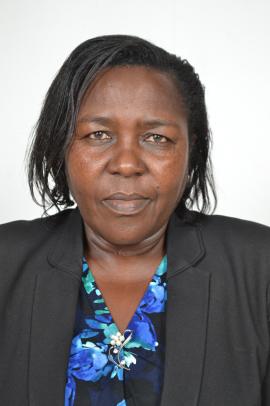Student Short Biography
(Max 250 words)
Dr. Winnie Tubey is a Lecturer of Tourism and Travel management at the Technical University of Kenya, having completed her Doctoral studies at the University of Nairobi where she pursued a PhD in Project Planning and Management- Monitoring and Evaluation option.
Meticulous and analytical researcher with 12 years of educational and hands-on experience in tourism management. Adaptive team player with in-depth knowledge of data collection, confidential document control and problem-solving. She is a skilled analyst and enthusiastic about supporting advancements in the tourism industry through application of new technologies.
She is an independent consultant and a researcher with a bias towards tourism conservation, community-based projects as well as sports tourism. She is a member of Eco-tourism Kenya, ASMA (African sports management association) and Sports Leaders Institute Africa.
http://scholar.google.com/citations?user=VQ3R1iMAAAAJ&hl=en
Thesis / Project Title
CONSERVATION STRATEGIES, MONITORING AND EVALUATION PRACTICES AND SUSTAINABILITY OF COMMUNITY BASED TOURISM MANAGEMENT IN KENYA. A CASE OF MAASAI MARA CONSERVANCIES
Thesis / Project Abstract
(Max 250 words)
The purpose of the study was to determine how conservation strategies influence the sustainability of community based tourism projects in Kenya. It further sought to investigate the extent to which monitoring and evaluation practices moderates the relationship between conservation strategies and sustainability of community based tourism projects in Kenya. The objectives of the study were; To determine the extent to which environmental conservation, socio-cultural conservation and community empowerment strategies influence sustainability of community based tourism projects in Kenya. The study used descriptive survey research design and adopt a mixed methods approach anchored on pragmatism as its philosophical underpinning. Qualitative data was analysed using content analysis while quantitative data used multiple regression analysis to test the nature and strength of the relationship between variables based on observed data and to predict the value of the dependent variable based on the value of the independent variable. It was concluded that environmental conservation, socio-cultural conservation and community empowerment strategies had a strong positive significant influence on the sustainability of community based tourism projects. It was established that monitoring and evaluation had a significant moderating influence on the relationship between conservation strategies and sustainability of community based tourism projects. The study recommends long-term research at different ecological and social scales including monitoring to support biodiversity conservation both in-situ and ex-situ; establishing monitoring and evaluation mechanisms in conservancies and encouraging conservation through enterprise to improve the livelihoods of communities.





